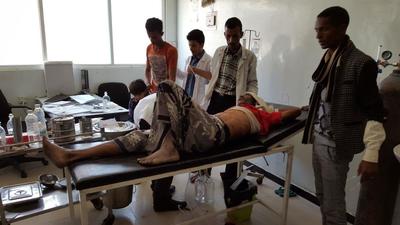As a cholera outbreak in Juba enters its fourth week, 29 people have lost their lives and more than 1,300 people have been treated for the disease. Médecins Sans Frontières /Doctors without Borders (MSF) is running three cholera treatment centres (CTCs) in the South Sudanese capital to the tackle the spread of the illness and treat those affected by it.
This week, Mary Keji rushed her two children, Matthew (four) and Ludia (two and a half), to an MSF CTC in Juba. Both children had fallen sick within hours of each other, showing symptoms of cholera such as diarrhoea and vomiting.
“As Matthew became worse, I started to worry. Then Ludia started to get sick, and I was afraid. I had heard there was cholera in Juba, and I knew it was serious. People said there was treatment in the main hospital (Juba Teaching Hospital), but it was too far away from me to get to.”
“Some neighbours told me that they had heard that an organisation had built a special clinic for cholera in our area. I picked up my children, and carried them here.”
Access to treatment
MSF is setting up two more CTCs as well as a number of oral rehydration points (ORPs) in key areas of Juba so that people like Mary, who cannot make the trip to hospital, still have access to treatment.
“If this clinic wasn’t here, I don’t know what I could have done. I would have had to wait. And just hope that they would somehow recover.”
Matthew and Ludia were both discharged from our CTC a few days later and returned home with their mother.
Scale-up needed
Brian Moller is the head of mission for our projects in Juba and South Sudan. “Efforts to prevent the further spread of cholera must continue, including health promotion and community awareness. This will need to be accompanied by a persistent scale-up of treatment facilities in areas where patients are unable to reach specialised care quickly.”
“The fact that cholera hasn’t entered Juba’s water supply is a major relief. If the water source became contaminated, this could create a serious spike in the numbers of people requiring urgent treatment.”
Resources are already under considerable strain in Juba, with thousands of people living in makeshift camps after violence erupted in late 2013.
As an outbreak of cholera is a risk in these conditions, MSF teams carried out a cholera vaccination campaign earlier this year and continue to carry out health promotion activities in the camps.
Find out more about our response to cholera in South Sudan here.





